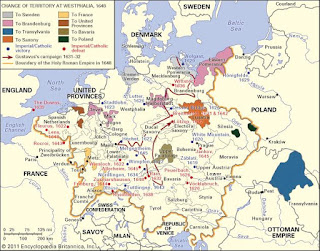The Qatarstrophe
Just hours ago, five countries: Saudi Arabia, Yemen, the UAE, Bahrain, and Egypt, cut diplomatic ties with the tiny peninsula of Qatar, the richest country on Earth when it comes to GDP per capita. This includes the expulsion of diplomats, and the end of all land, sea, and air travel between Qatar and the five aforementioned countries. This also includes the closure of airspace between the five nations and Qatar.
The effects were felt immediately in Qatar. The Qatari stock market plunged by 8%, and the state-run airline, Qatar Airways, is being forced to route flights that typically go on a more fuel-efficient route that runs over Saudi Arabia, to instead fly over Iran and Turkey to get to Europe, or Oman and the Arabian Sea for Qatar’s routes to Africa. Travel schedules and plans for Eid have also been thrown into disarray, as Qatar Airways’ Doha hub is vital for connecting traffic from the Middle East to Europe, Asia, North America, and Africa. Qatari residents rushed to stock up on food, as Qatar imports nearly 40% of its food from its land border with Saudi Arabia. Oil prices, after an initial rise, dropped by 1% over fears that an OPEC deal to reduce oil production could be weakened. Meanwhile, LNG prices have remained stable, but this stability might not last very long, as fears rise over the UAE’s daily consumption of 1.8 billion cubic feet of natural gas from Qatar.
The “Qatarstrophe” comes after the Qatari state run news agency reported on Qatar’s leader, Sheikh Tamim bin Hamad Al Thani, calling Iran an “Islamic Power”. Qatar however, claims its news agency was hacked, and that Al Thani never said this. Regardless, the Saudi Government retorted by accusing Qatar of helping Iranian terror groups in Bahrain, as well as accusing Qatar of funding ISIS, Al-Qaeda, and the Muslim Brotherhood, which Qatar has deep connections with, much to the dismay of the Gulf States and Egypt. Qatar later vehemently denied these claims, despite evidence to the contrary. At this point, it is important to note that Saudi Arabia has definitive links to Al-Qaeda, 9/11, and Wahhabist terror groups.
The Saudi led embargo of Qatar is part of Saudi Arabia’s regional campaign against Iran. Qatar is being punished for its pro-Iranian actions, such as agreeing to collaborate on developing the world's largest gas field. Saudi Arabia is trying to send a message here: Step out of the Sunni line, and be punished. The Saudi-Iran proxy war is not only in Qatar, however. It is evident in Syria, where Saudi backed Sunni rebels fight the Iranian backed, Shia Alawite Bashar Al-Assad.
The embargo also complicates matters for the United States. The US has its largest base in the Middle East, home to around 11,000 personnel, and 120 aircraft of various types. US B-52 bombers routinely fly out of the base to strike ISIS targets in Iraq and Syria. The United States, being an ally of both Saudi Arabia and Qatar, has only sought to “sit down all parties and have them address these differences”.
The embargo has great potential of destabilizing an already unstable region even further. The US needs to adapt smart policy, and do exactly what Secretary of State Tillerson suggested: have peaceful negotiations. Further bloodshed is not needed. Rather, the US needs to lead peaceful negotiations and strengthen the fight against terrorism.



Comments
Post a Comment